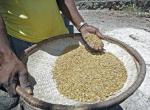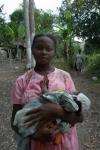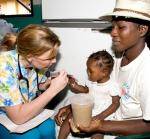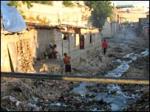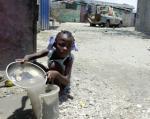Partner in Health Update: PIH Model Site Launched / 60 Minutes to Feature PIH
 With its emphasis on human rights, social justice and empowerment, Partners in Health (PIH) is making a difference in Haiti, Peru, Guatemala, Mexico, Russia, Lesotho and even Boston. PIH has inspired individuals working for non governmental organizations, international organizations and even governments to better serve the poor. PIH Model Online (PIHMO) was recently created as a practical online resource for anyone delivering health services in resource-poor settings. David West, part of the PIHMO team, notes that while the project is just in its early stages, there will be a flood of useful content in the coming year. The website will also provide a forum for discussion on health, human rights and poverty.
With its emphasis on human rights, social justice and empowerment, Partners in Health (PIH) is making a difference in Haiti, Peru, Guatemala, Mexico, Russia, Lesotho and even Boston. PIH has inspired individuals working for non governmental organizations, international organizations and even governments to better serve the poor. PIH Model Online (PIHMO) was recently created as a practical online resource for anyone delivering health services in resource-poor settings. David West, part of the PIHMO team, notes that while the project is just in its early stages, there will be a flood of useful content in the coming year. The website will also provide a forum for discussion on health, human rights and poverty.



